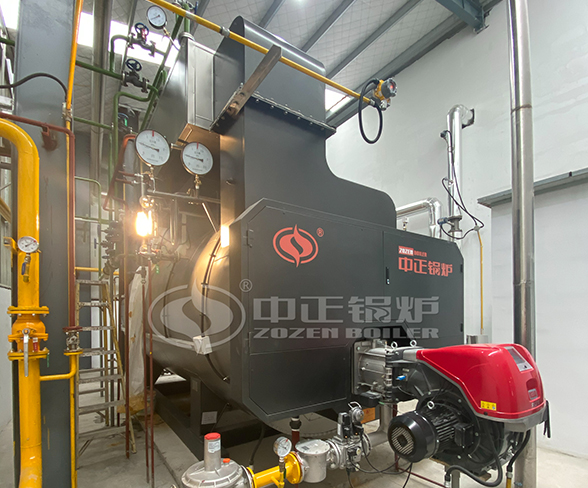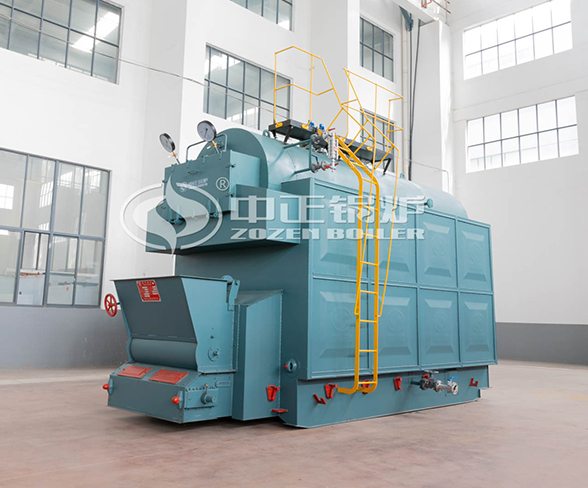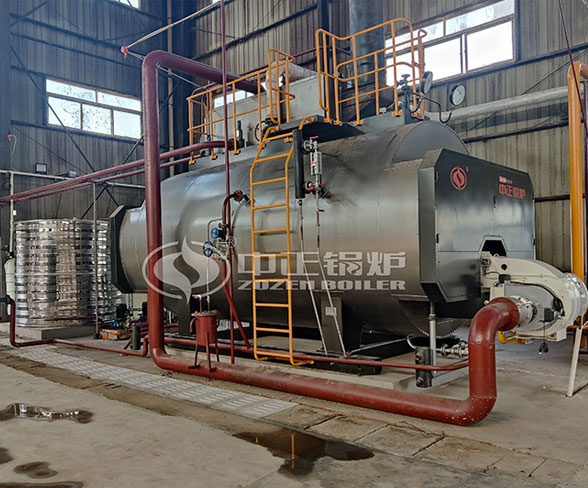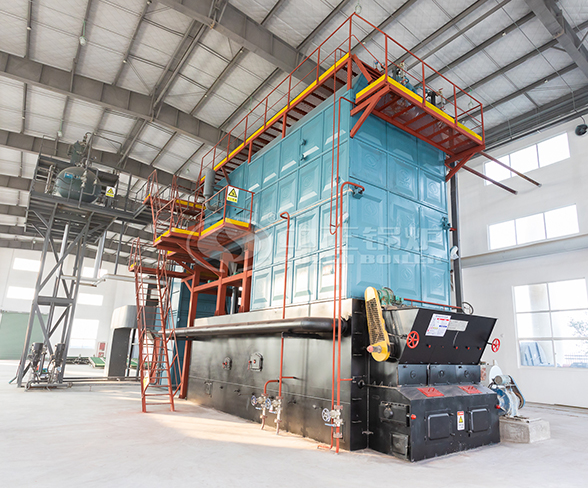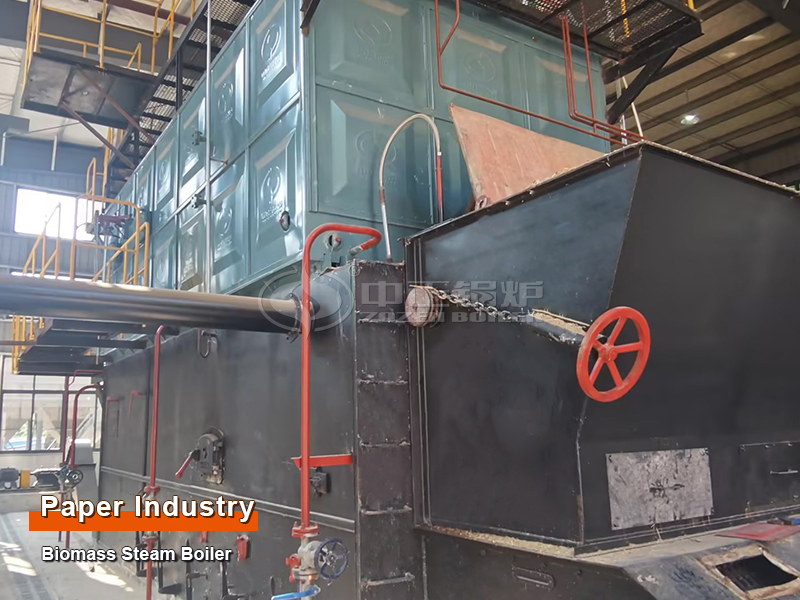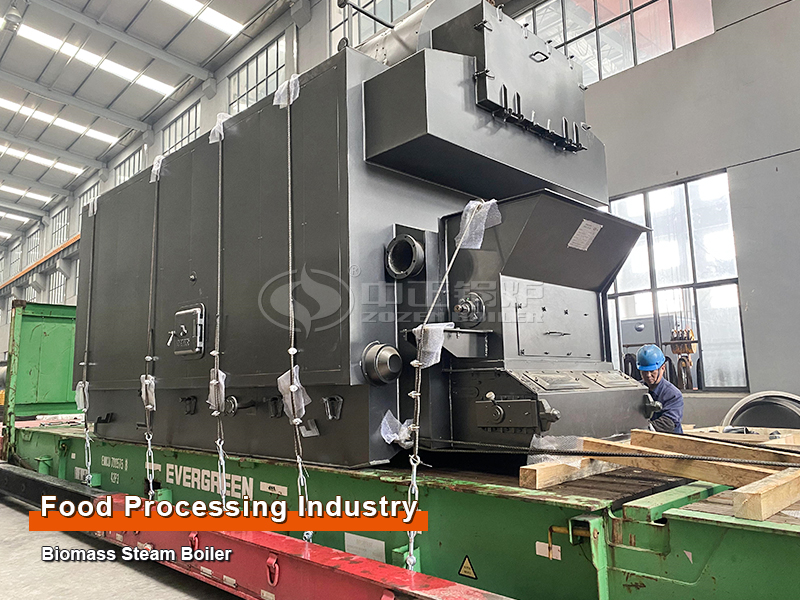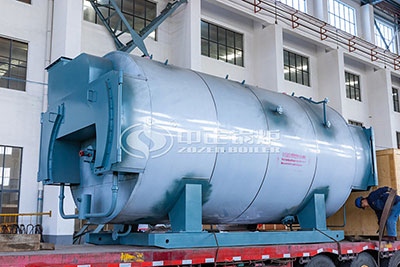Natural gas industrial boiler efficiency refers to the ratio of the thermal energy output of a natural gas fired boiler to the energy input supplied by the natural gas, typically expressed as a percentage. It is a measure of how effectively the boiler converts natural gas into heat and how efficiently the heat is transferred to the water or steam. Improving the efficiency of natural gas industrial boilers can result in significant cost savings and environmental benefits by reducing fuel consumption and greenhouse gas emissions.
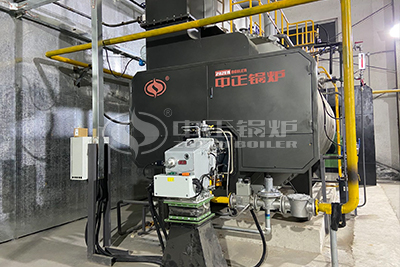
ZOZEN natural gas fired boiler
The efficiency of natural gas industrial boilers can be affected by several factors, including:
- Boiler design: The design of the boiler, including the type of heat exchanger, combustion chamber, and insulation, can affect the efficiency of the boiler.
- Combustion efficiency: The efficiency of combustion depends on factors such as the air-to-fuel ratio, fuel quality, and burner design.
- Boiler load: The efficiency of the boiler can vary depending on the load at which it is operating, with lower loads typically resulting in lower efficiency.
- Water quality: Poor water quality, such as high levels of dissolved solids or hardness, can reduce the efficiency of the boiler by causing scale buildup and reducing heat transfer.
- Maintenance: Regular maintenance, including cleaning and tuning the boiler, can help maximize its efficiency and prevent problems that can reduce efficiency.
- Fuel quality: The quality of the natural gas being used can affect the efficiency of the boiler, with lower quality gas resulting in lower efficiency
- Operating conditions: The operating conditions of the boiler, such as ambient temperature and humidity, can affect its efficiency.
By considering and optimizing these factors, natural gas industrial boiler efficiency can be improved, resulting in cost savings and environmental benefits.
Compared to other types of boilers, natural gas industrial boilers generally have a higher efficiency due to the clean-burning nature of natural gas. For example, natural gas boiler can have efficiencies of up to 98%, while coal fired boiler typically have efficiencies of around 85%. However, the efficiency of a boiler depends on several factors, including the type of fuel being used, the design of the boiler, and the operating conditions. Other types of boilers, such as biomass boilers and electric boilers, can also have high efficiencies if properly designed and maintained. Ultimately, the choice of boiler type and fuel depends on the specific needs and requirements of the application, as well as cost and environmental considerations.
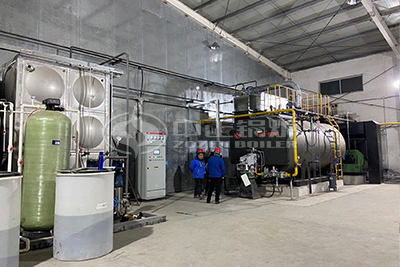
ZOZEN industrial natural gas boilers and accessories
ZOZEN has specialized in the production of industrial boilers for more than 30 years and has rich experience in design, production and sales. In the case of complete auxiliary equipment configuration, the efficiency of ZOZEN’s natural gas industrial boilers can reach a higher standard. If you have boiler needs, please feel free to contact us for more information about natural gas boilers.




